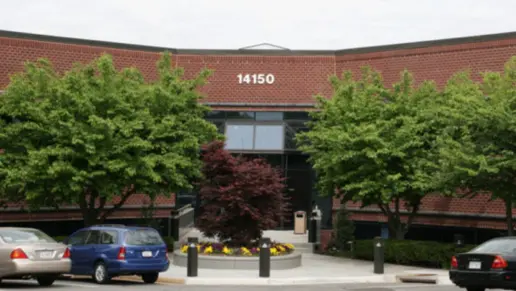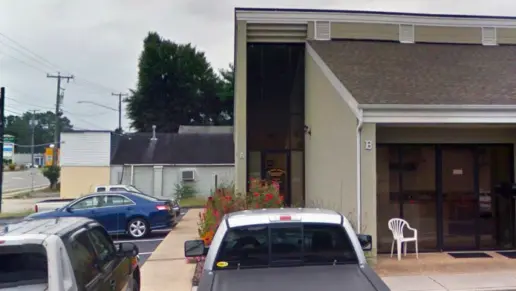This place is just like every other place that supposedly helps people in need like me, they are just people who kept judging me and it felt like they just didn't care if I was improving or not. I wouldn't recommend this place to anyone.
About Total Health Concepts
Those looking for a holistic approach to health, wellness and substance abuse addiction might find the treatment they are looking for at Total Health Concepts in Vienna, Virginia. This center is known for encouraging physical, emotional and psychological healing with its holistic team based approach to therapy. If you're an adult who is currently trying to overcome substance abuse addiction or a dual diagnosis mental illness, the center might be a good fit.
Over the past 35 years the center has helped countless individuals from different backgrounds and of different ages connect with themselves to address the root causes of their problems. With the center’s help many have addressed personal barriers, underlying issues and core beliefs that have helped them achieve long term sobriety.
The center provides family therapy and parental support, couples and relationship therapy, and individual treatment. Its group therapy programs specialize in addressing drug or alcohol addiction. If you enroll in group therapy at Total Health Concepts you’ll get to work on your communication and socialization skills. I appreciate this focus, since these skills have proven important in recovery.
You’ll also learn how to be vulnerable and express your feelings about others and situations through targeted treatment topics. This will help you overcome addiction and lead a healthier lifestyle. If you’re unsure about group therapy, being cautious is okay. The center understands how troubling it can be to take matters into your own hands and seek a better way of living. Past patients attest to the center’s helpful role in their addiction journeys, with many having left the center’s therapy program feeling understood, supported and with a new sense of belonging.
Latest Reviews
Rehab Score
Other Forms of Payment
Self-pay involves paying for treatment out of your own pocket. You can use savings or credit, get a personal loan, or receive help from family and friends to fund your treatment. If you don't have insurance or your insurance plan doesn't cover a specific program, self-pay can help ensure you still get the care you need.
Addiction Treatments
Levels of Care
Treatments
The goal of treatment for alcoholism is abstinence. Those with poor social support, poor motivation, or psychiatric disorders tend to relapse within a few years of treatment. For these people, success is measured by longer periods of abstinence, reduced use of alcohol, better health, and improved social functioning. Recovery and Maintenance are usually based on 12 step programs and AA meetings.
When you enroll in drug rehab in Virginia, a treatment plan is designed by professional staff in order to help you overcome drug addiction and modify addictive behaviors. This may include evidence-based treatments, group and individual therapy, and relapse prevention.
A combined mental health and substance abuse rehab has the staff and resources available to handle individuals with both mental health and substance abuse issues. It can be challenging to determine where a specific symptom stems from (a mental health issue or an issue related to substance abuse), so mental health and substance abuse professionals are helpful in detangling symptoms and keeping treatment on track.
Opioid rehabs specialize in supporting those recovering from opioid addiction. They treat those suffering from addiction to illegal opioids like heroin, as well as prescription drugs like oxycodone. These centers typically combine both physical as well as mental and emotional support to help stop addiction. Physical support often includes medical detox and subsequent medical support (including medication), and mental support includes in-depth therapy to address the underlying causes of addiction.
Programs


Clinical Services
Whether a marriage or other committed relationship, an intimate partnership is one of the most important aspects of a person's life. Drug and alcohol addiction affects both members of a couple in deep and meaningful ways, as does rehab and recovery. Couples therapy and other couples-focused treatment programs are significant parts of exploring triggers of addiction, as well as learning how to build healthy patterns to support ongoing sobriety.
Research clearly demonstrates that recovery is far more successful and sustainable when loved ones like family members participate in rehab and substance abuse treatment. Genetic factors may be at play when it comes to drug and alcohol addiction, as well as mental health issues. Family dynamics often play a critical role in addiction triggers, and if properly educated, family members can be a strong source of support when it comes to rehabilitation.
Group therapy is any therapeutic work that happens in a group (not one-on-one). There are a number of different group therapy modalities, including support groups, experiential therapy, psycho-education, and more. Group therapy involves treatment as well as processing interaction between group members.
In individual therapy, a patient meets one-on-one with a trained psychologist or counselor. Therapy is a pivotal part of effective substance abuse treatment, as it often covers root causes of addiction, including challenges faced by the patient in their social, family, and work/school life.
Life skills trainings involve all the skills a person must have in order to function successfully in the world. These include time management, career guidance, money management, and effective communication. Truly successful addiction recovery is based on the ability to not only live substance-free, but to thrive. Life skills teaches the practical necessities of functioning in society, which sets clients up for success in life, and therefore sobriety.
Nutrition therapy, aka medical nutrition therapy (MNT), is a way of treating physical, emotional, and medical conditions through diet. Specific dietary plans are designed by professional nutritionists or registered dietitians, and patients follow them in order to positively affect their physical and mental health.
Amenities
-
Residential Setting
-
Private Setting
-
Yoga Studio
Contact Information
115 Beulah Road NE
Suite 200-B
Vienna, VA 22180


